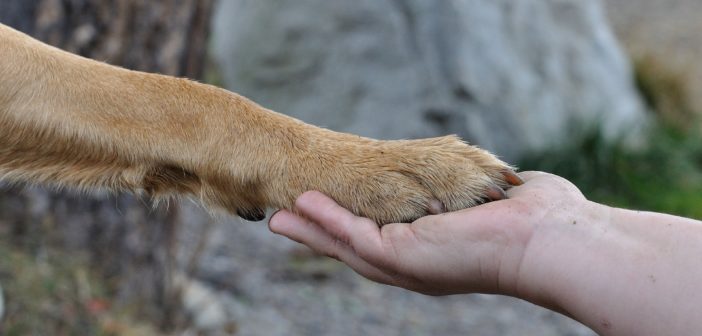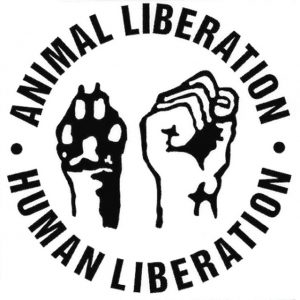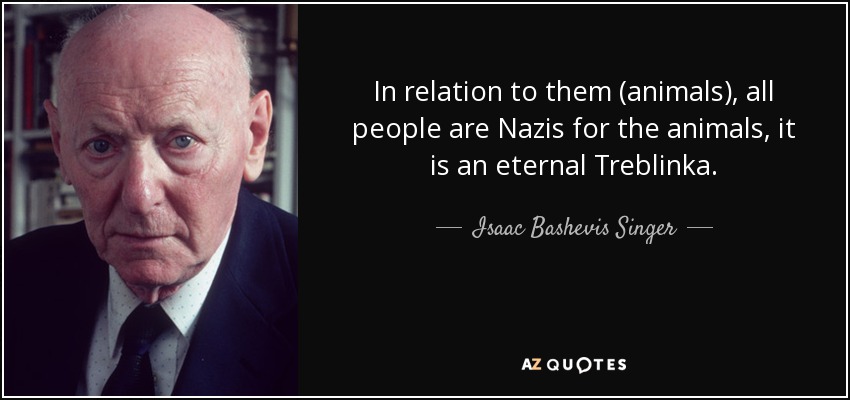Animal advocates are often prone to compare the struggle for animal rights with other social justice issues. We love to explain the parallels between sexism and speciecism, or compare animal farming with slavery. To what extent are these issues connected, and if they are, how do we bring this up in a way that is convincing rather than alienating?
I spoke about this topic with Dr Kristof Dhont, a lecturer at the University of Kent in the United Kingdom. Kristof’s research focuses mainly on the role of personality and situational factors in human intergroup and human-animal relations. He investigates, among other topics, the psychological underpinnings and ideological roots of speciesism, and the motivations for eating and exploiting animals. In a recent paper published in the European Journal of Personality, Kristof and his colleagues investigated the common ideological roots of speciesism and ethnic prejudice. In this interview, we’ll look for those common roots, but we’ll also wonder about the implications for strategy and communication. We also talk about animal rights being mainly a liberal/leftist thing, and why the Christmas meal is possibly the worst time to bring up the plight of animals.
Vegan Strategist: Kristof, what prompted you to do research on the common roots of attitudes towards animals and towards human groups? Can you tell us a bit more about this line of research?
Kristof Dhont: My interest in the assumed interconnectedness of speciesism and prejudices towards human groups (such as racism and sexism) was triggered by slogans like “speciesism = racism = sexism” and pictures of chained animals next to pictures of chained human slaves. Influential philosophers like Peter Singer have written about the parallels between how members from disadvantaged groups are (or have been) treated and the way people treat and think about non-human animals.
From numerous psychological studies, we already knew that people who dislike or express prejudice toward one outgroup (e.g. homosexuals) also tend to dislike a range of other social groups to which they don’t belong (e.g. Blacks, Latinos, poor people, immigrants, Muslims, Jews,… typically groups lower in status or power in a given context), a phenomenon termed “generalized prejudice.” Thus, for instance, people who endorse racist views are more likely to also endorse sexist views. This idea can be broadened to include attitudes towards animals.
VS: And this is something you went on to test yourself?
KD: Yes, as a first step, my colleagues and I wanted to extend this idea by investigating whether those who express more negative and prejudiced views toward ethnic and religious outgroups would also more strongly endorse exploitative attitudes toward animals (speciesist attitudes). This is exactly what we found, first in a study conducted in Canada and subsequently also in a series of studies conducted in Belgium, the UK and the USA. People who expressed greater ethnic prejudice also expressed greater support for a range of practices of animal exploitation such as hunting, factory farming, meat consumption, animal testing, whaling and using animals for human entertainment in for instance circuses or rodeos. In a new set of studies conducted with my graduate student Alina Salmen, we also found consistent support for the links between speciesism and sexism. Recently, a team of researchers at the University of Oxford replicated these findings with a newly developed scale of speciesism.
VS: Do you have an idea as to why this connection would exist?
KD: That’s indeed what we wanted to find out, although we acknowledge that a variety of factors are involved, which we weren’t all able to study together. From the perspective of a psychological scientist, we looked specifically at the role of general ideological beliefs and motives. Our expectation was that desires for dominance and inequality between social groups would play an important role here. More specifically, people differ from each other in the degree to which they prefer a society characterised by a strong hierarchy and inequality between social groups, as opposed to a society characterised by more egalitarian intergroup relationships. This general social orientation or trait is known as social dominance orientation. Our studies showed that a desire for group-based dominance showed substantial associations with both ethnic prejudice and speciesism, and represents a key ideological factor explaining why ethnic prejudice is associated with speciesism.
Related to preferences for hierarchical intergroup relations, also the belief that humans are meant to dominate over animals and the natural environment appeared to be important, not just as predictor of attitudes towards animals, but, for instance, also in predicting attitudes towards women. This shows that the way people think about animals (and about the status of animals) has implications for the way we think about human groups.
VS: Your findings seem to suggest that the slogans you referred to in the beginning are true to some extent. How helpful do you think these or similar (often more extreme) slogans are for changing people’s ideas about animals?
KD: From the viewpoint of a vegan or animal rights activist, these slogans make total sense and can also stimulate interesting debates and empirical research. Yet for most people it is rather unlikely that they will have the desired impact – perhaps even the contrary. First of all, slogans comparing animal exploitation or meat production to the exploitation of humans, for instance by referring to slavery, the holocaust, oppression of women, only make sense to people if they already accept the underlying presumption that the life or the suffering of human and non-human animals are of equal value. We know that many people, especially meat eaters, disagree with this idea and value human life more than the life of an animal, especially of farmed animals. For them, such slogans are perceived as irrational, and therefore further ignored at best.
I can think of at least three unintended, harmful consequences of using these comparisons. A first possible reaction is that people may not only feel being judged and criticized for eating meat, they may also think that you are calling them a Nazi, racist, sexist and so on, depending on the specific comparison. Rather than raising awareness about animal suffering, your audience will likely be offended and upset because of being accused of something which they (in the majority of cases) are certain that they are not. As a result, people will likely perceive the messenger (the organisation or movement) as more negative and hostile than before, and will be turned off.
A second reaction is that the message comes across as an attempt to downplay or trivialize the severity of the atrocious historical events or social injustice you are using in the comparison. Needless to say, these are extremely sensitive issues and by mentioning for instance the holocaust or slavery you shift attention from the suffering of animals (a topic people care less about) to a topic they care very deeply about and people may find it repulsive that you use others’ suffering for your “own” cause.
Finally, imagine the possible reaction of someone who belongs to the minority or historically disadvantaged group that is directly or indirectly compared to animals. How do they feel when activists (most likely white middle class people) compare them – in a way – to animals? Rather than thinking that you value the life of an animal as much as you value human life, they may actually think that you find black people or Jews to be no better than animals. There is thus a chance that they feel dehumanized or are perceived as less than human. We know from psychological research that people who feel dehumanized by a certain group will in turn show a strong negative reaction and reciprocal dehumanization toward that group. Again, not the reaction you were hoping for, but quite the opposite.
VS: Can we learn anything from interventions against racism to reduce speciesism or even reduce meat consumption?
KD: It is too early to make strong claims about what works and what doesn’t. There is simply not enough solid research that has addressed this question. One important consideration however, is that what helps to reduce speciesism or improve attitudes toward animals, will not necessarily affect meat consumption. Even though our findings show that people who strongly endorse speciesist beliefs also tend to consume more meat, we also know that people are very good at dissociating meat from animals. This means that many omnivores do care about animals to some extent, but paradoxically have no problem with eating meat. And there are many other motivational, social and external obstacles that prevent people to stop or reduce meat consumption (see the interview with Jared Piazza on this blog).
Overall, however, I do think there is plenty to learn from research on prejudice reduction. I particularly see a lot of promise in interventions focusing on creating opportunities for positive and meaningful interactions between humans and farm animals. Extensive empirical evidence has confirmed that favorable contact between members of different religious or ethnic groups reduces prejudice and improves intergroup relations. Intergroup contact stimulates empathizing and taking the perspective of the opposing group, which lead to better mutual understanding and more positive attitudes toward each other. There are good reasons and plenty of anecdotal evidence to expect that having personal contact with farm animals increases empathy toward them, which in turn increases opposition to animal exploitation. This is already possible by visiting farm sanctuaries. Of course, getting people to visit farm sanctuaries in the first place and letting them build a connection with animals, would be another challenge to overcome. Schools and youth or community organisations could play a meaningful role here to make this happen.
Also, other intervention techniques that increase perspective taking, for instance through media, storytelling, virtual reality, or mental simulations, may work in similar ways. Note that such interventions do not actively try to convince people about what is right or wrong, but allow them to experience something and consequently make up their own minds, avoiding the problem of persuasion resistance.
VS: Another conclusion from your research is that people on the right/conservative side of the political spectrum on average more strongly support animal exploitation and typically consume more meat. Is there any way to make use of this finding in our animal advocacy?
KD: Obviously, you don’t need to be a scientist to know or notice that animal rights and vegetarianism/veganism receive more support from progressives/liberals than from conservatives. Many vegans or animal advocates consider themselves liberal or left-wing. By emphasizing principles of equality and advocating for social change, animal rights seems to belong inherently in the left-wing corner. But labeling these topics as liberal or left-wing may also further increase the ideological divide between left- and right-leaning people and groups, and thus lead to even more political polarization on this topic. Even if conservatives are less likely to support animal rights or less willing to reduce their meat consumption, calling conservatives animal exploiters and liberals animal lovers will not help the animals. Such messages may even encourage conservatives to eat more meat and take pride in it, if it’s seen as a conservative thing to do. And in the end, the vast majority of liberals still eat meat. At the same time, many people on both sides of the political spectrum are against animal cruelty.
VS: How can we move away from the political polarization of animal rights and veganism?
KD: By being more mindful of the values of people across the political spectrum, and especially by being mindful of the values that conservatives find important. Framing the case for animal rights in terms of equality values (or egalitarianism) and social change/justice values will turn off conservatives, given that these are values that they find either not important or even in contradiction to their own values. Conservatives tend to resist social change and care deeply about family and cultural traditions, which in many cases involve meaty meals or other kinds of animal exploitation. It is hard to overestimate the importance of such traditions to people’s identities and moral frameworks. They bring family and community members together, are a source of intense gustatory pleasure, and ultimately provide a sense of social cohesion, stability and collective security. They are the social glue of the family or community. Bluntly criticizing some of the core aspects of these traditions – such as the meal – will likely come across as an attack on the values and traditions themselves, and will be met with resentment and defensiveness. Left-wing animal advocates likely consider such traditions as irrelevant and unimportant for their own moral choices, yet they should acknowledge the central role they play in many other people’s lives, particularly of conservatives. In this sense, perhaps one of the worst moments to start discussing veganism is during the Christmas or Thanksgiving meal. The real challenge here is taking animal exploitation out of the tradition without ending the traditions themselves, and providing adequate alternatives.
Also important is that across the ideological spectrum, people are sensitive to suffering and harm, and value caring for those who are suffering. Compassion is thus not a partisan issue and appeals to people on both sides of the ideological spectrum. In sum, when it comes down to moral arguments, the most important idea behind animal ethics, the principle of “do no harm” resonates with the moral values of both liberals/progressives and conservatives. Further avoiding the emphasis on principles that are only valued by the left and being mindful of some moral principles valued by conservatives, like traditions, could go a long way in avoiding the ideological polarization of animal rights.
This interview was originally published on The Vegan Strategist blog.
Featured image: A human hand and dog paw. How are animal and human liberation related? Image credit Pixabay.








